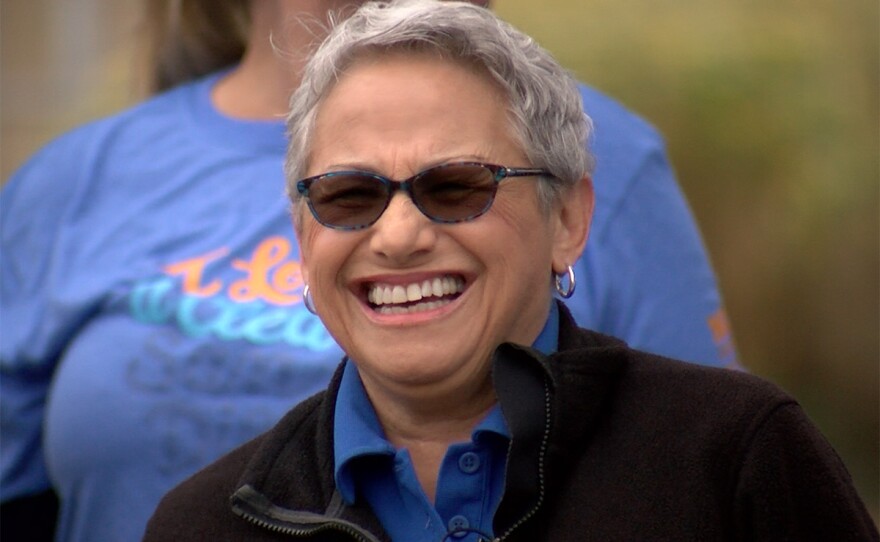A freshly inaugurated San Diego City Council on Thursday chose Councilmember Jen Cambell as its next council president after a long and contentious meeting that was frequently interrupted by technical difficulties.
Campbell beat out Councilmember Monica Montgomery Steppe for the position, which can be one of the most powerful in city government because its holder has final say over what issues make it on council agendas.
The vote was 5-4, with councilmembers Stephen Whitburn, Marni von Wilpert, Chris Cate and Raul Campillo supporting Campbell; and councilmembers Joe LaCava, Vivian Moreno and Sean Elo-Rivera supporting Montgomery Steppe.
Montgomery Steppe, the only Black elected official in the city, had the overwhelming support of those who called in to provide public comment. Many called her a champion of racial and social equity, criminal justice reform and community-driven change. She also won support from a long list of community-based organizations, the San Diego County Democratic Party and the San Diego & Imperial Counties Labor Council.
RELATED: 73rd San Diego City Council Sworn In, Promises Action On Pandemic
The relatively few who spoke in favor of Campbell said she had been an advocate for San Diego's working class. In her remarks after her nomination, Campbell said she had spent her two years in office putting the city's interests ahead of her own political gain.
"My entire vision as council president is predicated on making sure that each one of our nine council districts can succeed in improving their communities while advancing the goals of our city at the same time," said Campbell, whose district includes Pacific Beach and Point Loma,
Montgomery Steppe touted her leadership in placing Measure B, which strengthened the city's civilian oversight of the police, on the November ballot, and winning unanimous approval for a new ordinance to regulate surveillance technologies in the city. She focused her remarks on the need for greater equity.
"We are looking at a city where, in my community, parents cannot allow their children to bike down the road because they don't want them to get hurt or slamming into a pothole," said Montgomery Steppe, who represents most of Southeast San Diego. "All I want to do is ensure that San Diego is the same for all of us."
RELATED: Todd Gloria Sworn In As San Diego’s 37th Mayor
Some who called into the meeting said the council majority's support for Campbell was the result of backroom deals struck with special interests. Will Rodriguez-Kennedy, chairman of the San Diego County Democratic Party and backer of Montgomery Steppe, was blunt in his response to the decision.
"None of this matters because of powerful special interests have locked up this decision behind closed doors, and I'm left feeling powerless," Rodriguez-Kennedy said.
The meeting began roughly half an hour late because of technical problems. The live stream of the meeting was also interrupted several times.
Some remarks by Campbell drew scorn from listeners to the meeting who said she failed to grasp the seriousness of racial inequity in San Diego. When asked by Councilmember Elo-Rivera what she would do to advance equity in the city, Campbell told a story of when she was eight years old and was upset by a commercial for "skin-tone" Band-Aids that only matched white skin.
Campbell also recalled growing up in a racially diverse neighborhood in which "we all got along great — it was like utopia." She later said: "Here in San Diego we are very lucky. It's not so bad as my friend from Mississippi in high school" whose family fled the state due to racism.






